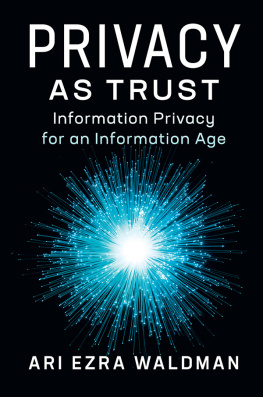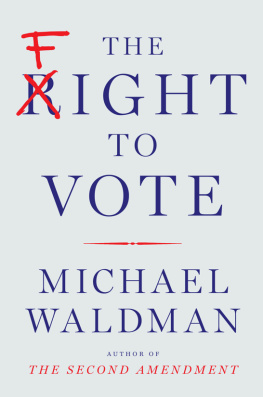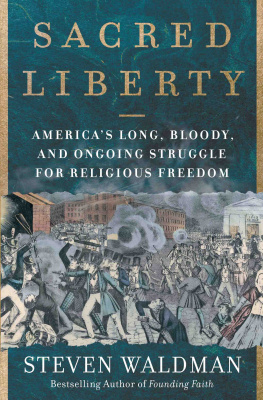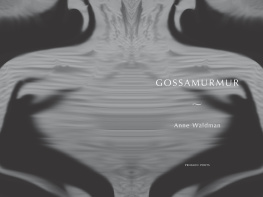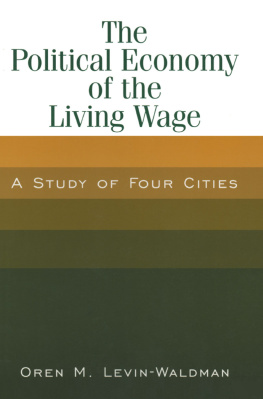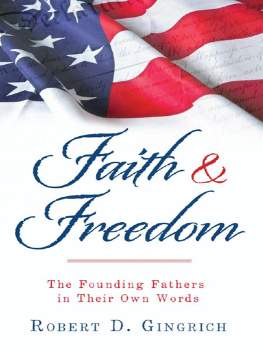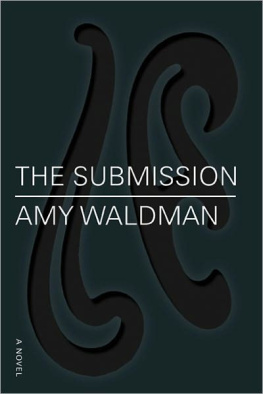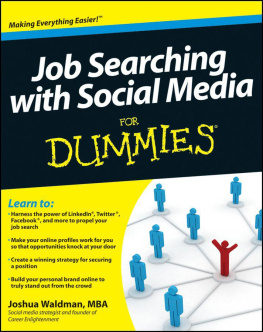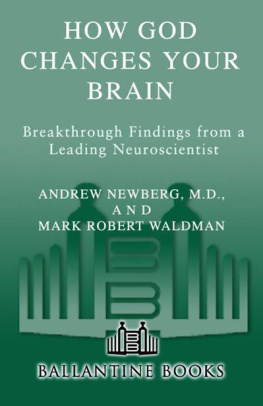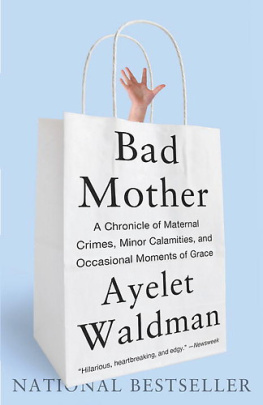Waldman - Founding Faith
Here you can read online Waldman - Founding Faith full text of the book (entire story) in english for free. Download pdf and epub, get meaning, cover and reviews about this ebook. year: 2008, publisher: Random House Publishing Group, genre: Religion. Description of the work, (preface) as well as reviews are available. Best literature library LitArk.com created for fans of good reading and offers a wide selection of genres:
Romance novel
Science fiction
Adventure
Detective
Science
History
Home and family
Prose
Art
Politics
Computer
Non-fiction
Religion
Business
Children
Humor
Choose a favorite category and find really read worthwhile books. Enjoy immersion in the world of imagination, feel the emotions of the characters or learn something new for yourself, make an fascinating discovery.

Founding Faith: summary, description and annotation
We offer to read an annotation, description, summary or preface (depends on what the author of the book "Founding Faith" wrote himself). If you haven't found the necessary information about the book — write in the comments, we will try to find it.
Waldman: author's other books
Who wrote Founding Faith? Find out the surname, the name of the author of the book and a list of all author's works by series.
Founding Faith — read online for free the complete book (whole text) full work
Below is the text of the book, divided by pages. System saving the place of the last page read, allows you to conveniently read the book "Founding Faith" online for free, without having to search again every time where you left off. Put a bookmark, and you can go to the page where you finished reading at any time.
Font size:
Interval:
Bookmark:
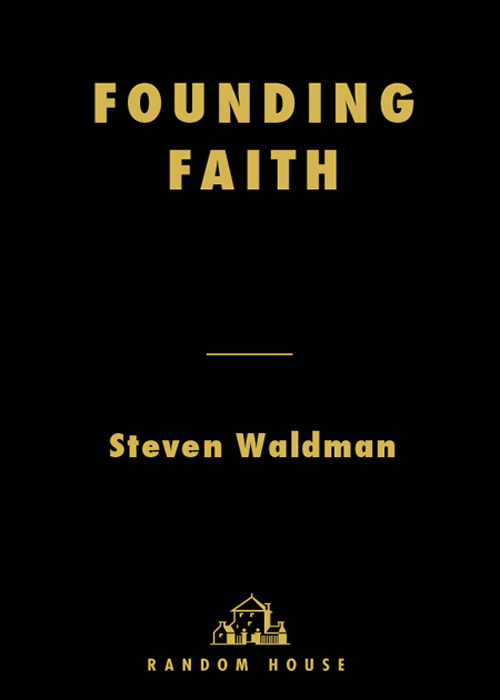
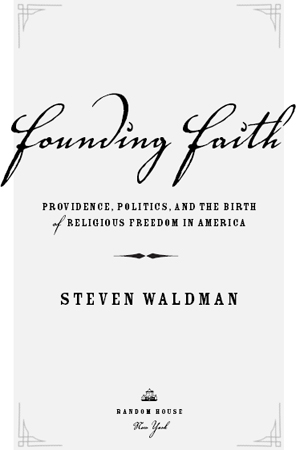
contents
1. Christian America
Settlers try to plant Protestantism as the official faithand fail
2. Benjamin Franklin
The Puritan New Ager
3. The Evangelical Revolution
A cross-eyed preacher fuels the drive for independence and religious freedom
4. John Adams
The angry Unitarian
5. The Godly Roots of Rebellion
Fear of Anglicans and Catholics helps cause the American Revolution
6. George Washington
Protected by God
7. Holy War
George Washington uses religious tolerance, and appeals to God, to win the War of Independence
8. Thomas Jefferson
The pious infidel
9. Natures God Meets the Supreme Judge
The Declaration of Independence and the God compromise
10. James Madison
The radical pluralist
11. A Diabolical Persecution
A wave of bigotry in Madisons backyard changes history
12. The Mighty Current of Freedom
After independence, the states begin wrenching themselves from the old churchstate models
13. Forgetting the Powerful Friend
The Founders reject 150 years of history
14. The First Amendment Compromise
Building a wall that looks good from all sides
15. Practicing What They Preached
The first presidencies bring inspiring rhetoric, dirty politics, and sharp disagreement among the Founders
16. Friends in Heaven
The Founders end their spiritual journeys and prepare to continue the conversation in the next life
For Amy, Joseph, and Gordon
introduction
T HOMAS JEFFERSON STOOD IN A BLACK SUIT AT THE DOORWAY OF the White House, watching a bizarre spectacle. It was New Years Day 1802, and two horses were pulling a dray carrying a 1,235-pound cheesejust for him. The work of nine hundred cows, the cheese measured four feet in diameter and seventeen inches in height. As impressive as the size of the cheese was its eloquence. Painted on the red crust was the inscription: REBELLION TO TYRANTS IS OBEDIENCE TO GOD. The cheese was a gift from a Baptist church in western Massachusetts.
It might seem perplexing that religious leaders would be paying tribute to Jefferson, who just a year earlier had been attacked as an infidel and atheist. John Adamss campaign operatives during the 1800 presidential election had suggested that the Francophile Jefferson would destroy Americas Christian heritage just as the French revolutionaries had undermined their own. Quoting Jeffersons line that he didnt care whether someone believed in one god or twenty, a Federalist newspaper had posed the election as a cataclysmic choice: GodAnd a religious president[or] Jeffersonand no God.
But in a modern context, what made the cheese remarkable is that it came from evangelical Christians.1 It was the brainchild of the Reverend John Leland, a Baptist and, therefore, a theological forefather of the Reverend Jerry Falwell. Though considered anti-religion by some, Jefferson had become a hero to evangelicalsnot despite his advocacy of separation of church and state, but because of it. Baptists believed state-supported religion violated Jesuss teachings and deeply appreciated Jeffersons efforts to keep government and religion far apart.
Are we surprised that some of the most important advocates for separation of church and state were evangelical Christians? If so, it may be because we too often view our history through the lens, darkly, of todays culture wars. In battles over prayer in school, courtroom displays of the Ten Commandments, and other emotional issues, both sides follow a well-worn script: The religious side wants less separation of church and state, and the secularists want more. Straightforward. And from these baseline assumptions flow many others. For starters, many conservatives believe that if they can show that the Founding Fathers were very religious, they thereby also prove that the Founders abhorred separation of church and state. Any diligent student of American history finds that our great nation was founded by godly men upon godly principles to be a Christian nation, Falwell wrote.2 If the Founders were devout Christians, then activists can claim their endorsement for their agenda of inserting more religion into the public square. Tim LaHaye, coauthor of the blockbuster apocalyptic Left Behind series, declared in his book Faith of Our Founding Fathers that these men had beat back the attempts of the secularizers 200 years ago. If they were living today, I know whose side they would champion.3 Some liberals, meanwhile, feel the need to prove that the Founders were irreligious or secularand therefore, of course, in favor of separation. In The Nation magazine, Brooke Allen maintained that the Founding Fathers were not religious men.4 If they were irreligious, then surely they would oppose letting faith infiltrate the halls of government.
But in the heat of this custody battle over the spiritual lives of the Founding Fathers, both sides distort history. Each has embraced a variant of the same non sequitur.5 In the eighteenth century, it did not follow that ones piety determined ones views about separation of church and state. Being pro-religion didnt mean one was anti-separation. And being pro-separation didnt mean one was anti-God. In fact, the culture wars have so warped our sense of history that we typically have a very limited understanding of how we came to have religious liberty. Freedom of conscience, as the Founders liked to call it, is one of the most important characteristics of American democracy, and yet the real story of how it happened is rarely told. Thats what this book will attempt to do.
Along the way, we will by necessity trample on some common myths:
America was settled as a bastion for religious freedom. Actually, it was settled primarily by people who wanted rule of one religious denomination over others.
The Founding Fathers were mostly rebelling against the religious tyranny in Europe. Actually, they were rebelling as much against the religious tyranny they saw among their colonial neighbors.
The Founding Fathers wanted religious freedom because they were Deists.6 Few of them were true Deistspeople who believed that God had created the universe and then receded from action. Most of the Founding Fathers at one point believed in a God who intervened in the lives of Americans.
The Founding Fathers wanted religious freedom because they were devout Christians. Most of them disliked much about organized Christianity, the clerical class, and its theology, especially the common Calvinist doctrine that salvation came only from expressed faith in Jesusor from being among Gods selectrather than through good works.
Evangelical Christians invariably want more government support for religion and less separation of church and state. In fact, separation of church and state would not exist if not for the efforts of eighteenth-century evangelicals.
The American Revolution was fought solely over economic and philosophical issues. One of the most important factors was religion.
The United States was founded as a Christian nation. North America was settled as a Christian realm, and many states did promote Christianity even after the nations founding, but the United States of America was not established as a Christian nation.
Next pageFont size:
Interval:
Bookmark:
Similar books «Founding Faith»
Look at similar books to Founding Faith. We have selected literature similar in name and meaning in the hope of providing readers with more options to find new, interesting, not yet read works.
Discussion, reviews of the book Founding Faith and just readers' own opinions. Leave your comments, write what you think about the work, its meaning or the main characters. Specify what exactly you liked and what you didn't like, and why you think so.

